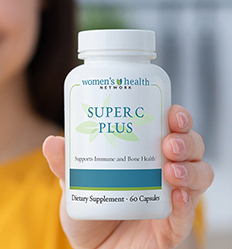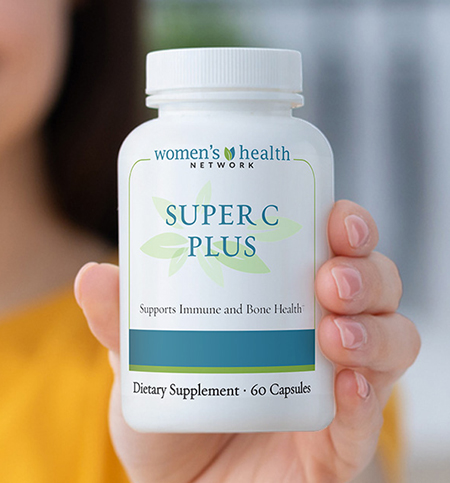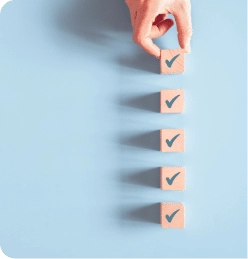Authored by Dr. Amber Hayden, DO
A lot of us don’t know how to get through the day without the predictable pick-me-up from our favorite caffeinated beverage. For most people, caffeine does not cause problems, but there are still reasons why you might want to end your love affair with caffeine. Maybe it makes you feel jittery, or your practitioner has recommended you give it up. You may have even tried to quit caffeine before and stopped because you got a pounding headache.

Take our caffeine addiction quiz now.
Approximately 90 percent of all adults in the world consume caffeine on a daily basis, mostly through teas, coffee and sodas. In their unprocessed forms, coffee and teas contain beneficial chemicals, including magnesium and chromium. These can help the body effectively use insulin, which controls blood sugar.
However, caffeine does not contribute to these benefits. Instead, caffeine is a stimulant that works on your central nervous system, and consequently affects all organs. Caffeine is hard to give up because we can develop strong dependency on it for physiologic, psychological and emotional reasons:
- Physiological: Caffeine has measurable physical effects on the body by increasing heart rate and respiration, and making us feel “more alive.”
- Psychological: Research shows that caffeine improves concentration and task performance. It can also help people feel more “social” and at ease, and we love to share the caffeine ritual with friends.
- Emotional: Perhaps the strongest aspect of dependency on caffeine is linked to its mood-lifting effects. Every day, we look forward to those treasured, oasis-like moments when we consume caffeine.
Many of us develop specific patterns with our caffeine consumption. Some people always drink coffee right before important meetings, to energize before working out, or to help them stay on task. Over time, you may see your response to caffeine change so that you need more to feel the same buzz, or to feel “normal.” And if you try to ignore the desire for caffeine, you get withdrawal symptoms such as fatigue, headache or nausea.
These symptoms are often uncomfortable enough to force women to continue consuming caffeine despite adverse side effects like insomnia and stomach upset. If you’ve decided to cut back or eliminate caffeine, there are some simple, effective ways to meet your goal without the discomfort of withdrawal.
Are you addicted to caffeine?
Some women can drink coffee every day with no problem. Others tolerate caffeine well for years, only to find it causes symptoms as they approach menopause. Some find that ingesting any amount of caffeine can trigger more severe concerns.
Consider the following questions, and trust your inner guidance about quitting caffeine completely.
- Do you use caffeine to facilitate a physical activity (waking up, exercising, having a bowel movement, concentrating)?
- Do you have to have caffeine in the morning? Could you substitute hot water with lemon or herbal tea?
- Do you crash or have caffeine/sugar cravings in the afternoon/early evening?
- Do you grow irritable, get a headache, or feel “floaty” or disembodied if you miss your caffeine fix?
- Do you have difficulty falling asleep at night and waking up refreshed?
- Do you use caffeine to heighten the effects of other substances, such as nicotine, alcohol or sugar?
- Do you worry your social routines would suffer if you went caffeine-free?
- Does a life without caffeine seem impossible to you?
If you answered yes to two or more of these questions, consider examining how to change your attachment to caffeine.
For certain groups of women, even moderate caffeine dependency can cause problems. You may also want to think about quitting if you:
- suffer from adrenal burn-out (a rapidly growing group).
- are insulin resistant and aren’t getting enough energy from good food.
- are a slow detoxifier and it takes longer for you to recover from toxins in your system (yes, your body sees caffeine as a toxin).
Quitting caffeine — slowly and surely
For most women, the easiest way to detox from caffeine is a little at a time. If you are a coffee drinker, start the day by having a regular cup of coffee. For your second serving, pour a cup that’s half-regular and half-decaffeinated coffee — though any ratio will work as long as you continue to taper down methodically.
Common symptoms of caffeine “withdrawal”
You may be unaware of your dependency on caffeine, until you miss a cup or try to give it up. Some common withdrawal symptoms:
- Fatigue
- Sluggishness
- Daytime drowsiness
- Inability to focus
- Irritability
- Depression
- Anxiety
- Reduced sense of well-being
- Headaches (throbbing, pressure-type headache is the most common symptom of both “overdose” and withdrawal.)
If you just want to cut back, hold the step-down process at any point that provides the best balance for you. You can also cut down the size of each caffeinated drink and every day slowly decrease that serving size or the number of servings.
As you taper off caffeine, you may notice symptoms as your system adjusts to lower levels. Hang in there: withdrawal symptoms peak within two to four days. Even if you quit cold turkey, most symptoms should disappear after just one week without caffeine. For help with headaches, supplement with extra Vitamin C, take regular breaks, drink plenty of water, go for a walk and get to bed on time.
Note: Quitting caffeine can be complicated by its presence in certain over-the-counter and prescriptions drugs, or by a close association with smoking and nicotine. In those cases, counseling and medical assistance can help.
Taking away caffeine — add more support
Your liver breaks down caffeine to eliminate it from your body. Functional medicine uses supplemental nutrients to bolster the liver, especially during active detox, including:
- Magnesium
- Zinc
- B vitamins
- Milk thistle
- Potassium
- Calcium
You can reduce extra stress on your liver during caffeine detox by eliminating foods and drinks that contain toxins or allergens. Also, consider an alkaline diet, which is good for your health for many reasons. It can provide minerals and antioxidants that help clear out reactive debris created during detoxification.
Other diet tips for caffeine detox include getting enough protein and dietary fiber because bowel function often slows during caffeine withdrawal. Fiber also promotes good bacterial balance in the digestive tract which helps with nutrient absorption and detoxification.
Alternatives to caffeinated coffee
One of the best tips for cutting down on caffeine is to quench your thirst by drinking a big glass of water or a cup of herbal tea immediately upon waking, before you take in any caffeine. Then eat breakfast (with protein) as soon as possible. Then, if you still want a caffeinated drink, go ahead and have it.
There are coffee alternatives to check out. “Grain coffees” are well-known substitutes brewed from a variety of ingredients such as almonds, malted barley and chicory — a staple in New Orleans-style coffee. Or try non-caffeinated teas made from dandelion root, peppermint, sassafras, ginseng, ginger root, comfrey, lemongrass and red clover.
Life after caffeine: the return of your body’s natural rhythms
If you worry you might lose your edge without caffeine, consider this: your body and mind are not meant to be “on” all day, every day. The body works best when you respect its natural cycles. There’s a time for energetic activity and alertness, and a time for relaxation and rest. That rest period is when your body performs much of its detoxification and repair so you want to make sure it happens regularly.
Allowing for these natural rhythms will reduce your dependency on caffeine, as well as the damaging impact it may be having on your health. So take it easy as you go about your caffeine detox — you’re being good to your body — without adding stress.
1 Schuckit, M. 2000. Drug and Alcohol Abuse, 278. NY: Kluwer Academic Publishers. URL: https://books.google.com/books?id=qlDFD0SLXlcC (accessed 08.25.2009).
2 Schuckit, M. 2000. Drug and Alcohol Abuse, 279. NY: Kluwer Academic Publishers. URL: https://books.google.com/books?id=qlDFD0SLXlcC (accessed 08.25.2009).
3 Coon, D., & Mitterer, J. 2008. Introduction to Psychology: Gateways to Mind and Behavior, 279. URL: https://books.google.com/books?id=vw20LEaJe10C&pg=PT240 (accessed 08.25.2009).
4 Yew, D., & Laczek, J. 2007. Toxicity, caffeine. URL: https://emedicine.medscape.com/article/821863-overview (accessed 08.26.2009).
Schuckit, M. 2000.
5 Knutti, R., et al. 1982. The effect of pregnancy on the pharmacokinetics of caffeine. Arch. Toxicol. Suppl., 5 187–192. URL (abstract): https://www.ncbi.nlm.nih.gov/pubmed/6954898 (accessed 08.26.2009).
6 Liska, D., et al. 2005. Detoxification and biotransformational imbalances. In Textbook of Functional Medicine, ed. D. Jones & S. Quinn, 275–298. Gig Harbor, WA: Institute for Functional Medicine.
7 Roberts, R., et al. 1983. Oral contraceptive steroids impair the elimination of theophylline. J. Lab. Clin. Med., 101 (6), 821–825. URL (abstract): https://www.ncbi.nlm.nih.gov/pubmed/6854122 (accessed 08.26.2009).
Patwardhan, R., et al. 1980. Impaired elimination of caffeine by oral contraceptive steroids. J. Lab. Clin. Med., 95 (4), 603–608. URL (abstract): https://www.ncbi.nlm.nih.gov/pubmed/7359014 (accessed 08.26.2009).
8 Cornelis, M., et al. 2006. Coffee, CYP1A2 genotype, and risk of myocardial infarction. JAMA, 295 (10), 1135–1141. URL: https://jama.ama-assn.org/cgi/content/full/295/10/1135 (accessed 10.05.2009).
O’Riordan, M. 2006. Heavy coffee drinkers with slow caffeine metabolism at increased risk of nonfatal MI. URL: https://www.theheart.org/article/659871.do (accessed 08.26.2009).
9 Elliot, R. Accelerated detox. URL: https://www.ineedcoffee.com/99/detox (accessed 10.05.2009).
10 Schuckit, M. 2000. Drug and Alcohol Abuse, 278. NY: Kluwer Academic Publishers. URL: https://books.google.com/books?id=qlDFD0SLXlcC (accessed 08.25.2009).
11 Wong, C. 2006. What is white willow bark? URL: https://altmedicine.about.com/od/completeazindex/a/willow_bark.htm (accessed 10.05.2009).
12 Sands, G. 1990. A protocol for butalbital, aspirin and caffeine (BAC) detoxification in headache patients. Headache, 30 (8), 491–496. URL (abstract): https://www3.interscience.wiley.com/journal/119367317/abstract (accessed 10.05.2009).
Reference on symptoms of caffeine withdrawal
Fortin, J. 2009. Beware the perils of caffeine withdrawal. Health Minute. URL: https://www.cnn.com/2009/HEALTH/04/06/hm.caffeine.withdrawal/index.html (accessed 10.05.2009).












